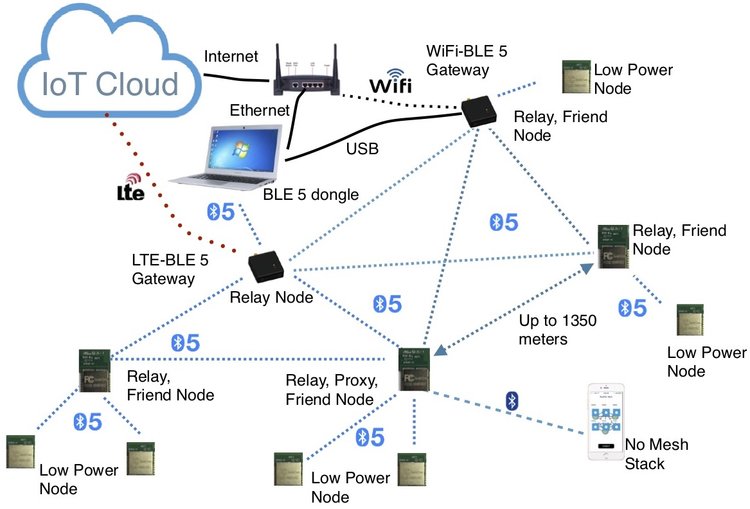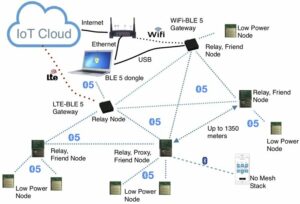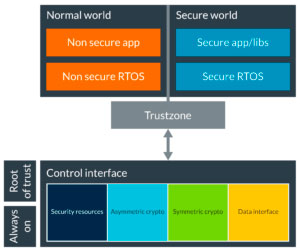Wireless Sensor System Security is Essential
Table of Contents

Security is Mandatory in Bluetooth Mesh Networks
Phantom features Unparalleled Security Features
By offloading decryption, encryption, and authentication works to our CryptoCell-310, Phantom can deliver high performance in Bluetooth mesh networks.

Mesh Network, Individual Applications, and Bluetooth 5.0 Devices Are All Secure
This Cannot Be Switched Off or Reduced in Any Way
- All mesh messages are encrypted and authenticated.
- Network security, application security, and device security are addressed independently.
- Security keys can be changed during the life of the mesh network via a key refresh procedure.
- Message obfuscation makes it difficult to track messages sent within the network providing a privacy mechanism to make it difficult to track nodes.
- Mesh security protects the network against replay attacks.
- The process by which devices are added to the mesh network to become nodes, is itself a secure process.
- Nodes can be removed from network securely, in a way which prevents trash can attacks.
Three Security Keys Provide Security to Different Aspects of the Mesh and Achieve a Critical Capability in Mesh Security, that of “Separation of Concerns”
- NetKey (network key) possessed by all nodes. It allows a node to decrypt and authenticate up to the Network Layer. A relay node uses NetKey to decrypt and authenticate messages before relaying.
- AppKey (application key). Application data for specific application can only be decrypted by nodes that possess the right AppKey.
- DevKey (device key) is unique to each node. It is used for secure communication with the provisioner during provisioning process.
In a mesh network with many nodes, a lot of processing power is required for decryption and authentication at least for the relay nodes and possibly for other nodes. Phantom is embedded with an ARM CryptoCell-310 cryptographic co-processor. To achieve acceptable mesh network performance, Phantom should be used in mesh networks with many nodes.
CryptoCell-310 provides the following key features:
- Cryptographic hardware engines, providing CPU host offloading, operation, acceleration and power consumption reduction.
- Cryptography and security middleware services
- Platform security building blocks libraries
- Device life-cycle-state management
- Key management infrastructure
- Secure boot.
By offloading decryption, encryption, and authentication works to CryptoCell-310, Phantom can deliver the highest performing security of all Bluetooth mesh wireless sensor networks.

Dr. Michael Howard, is an American entrepreneur and Air Force veteran with a remarkable career in the predictive maintenance industry spanning over 30 years, and a variety of industrial sectors, including industrial manufacturing, reliability engineering, and instrumentation development and design organizations. Dr. Howard is a graduate of Excelsior University, Capella University, and New Charter University with degrees in Electro-Mechanical Engineering, Leadership and Organizational Management, and Engineering Management.
As the CEO of Erbessd Instruments, he leads strategy, sales, marketing, and operations in English-speaking markets. He is a certified reliability engineer, certified maintenance and reliability professional, and category III vibration analyst. Michael is a passionate advocate for wireless instrumentation, video deflection, and the Industrial Internet of Things (IIoT).
ERBESSD INSTRUMENTS® is a leading manufacturer of Vibration Analysis Equipment, Dynamic Balancing Machines, and Condition Monitoring with facilities in Mexico, the USA, the United Kingdom, and India.








